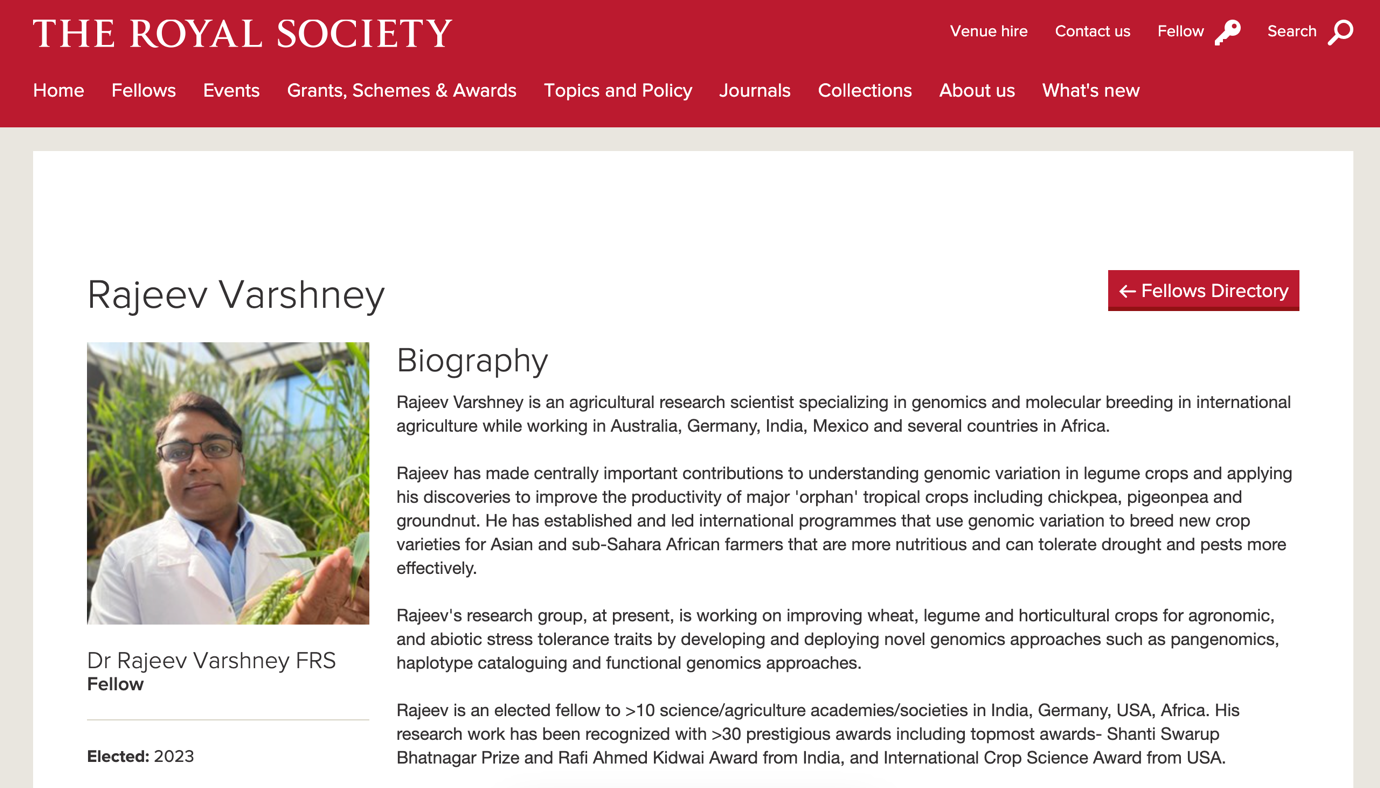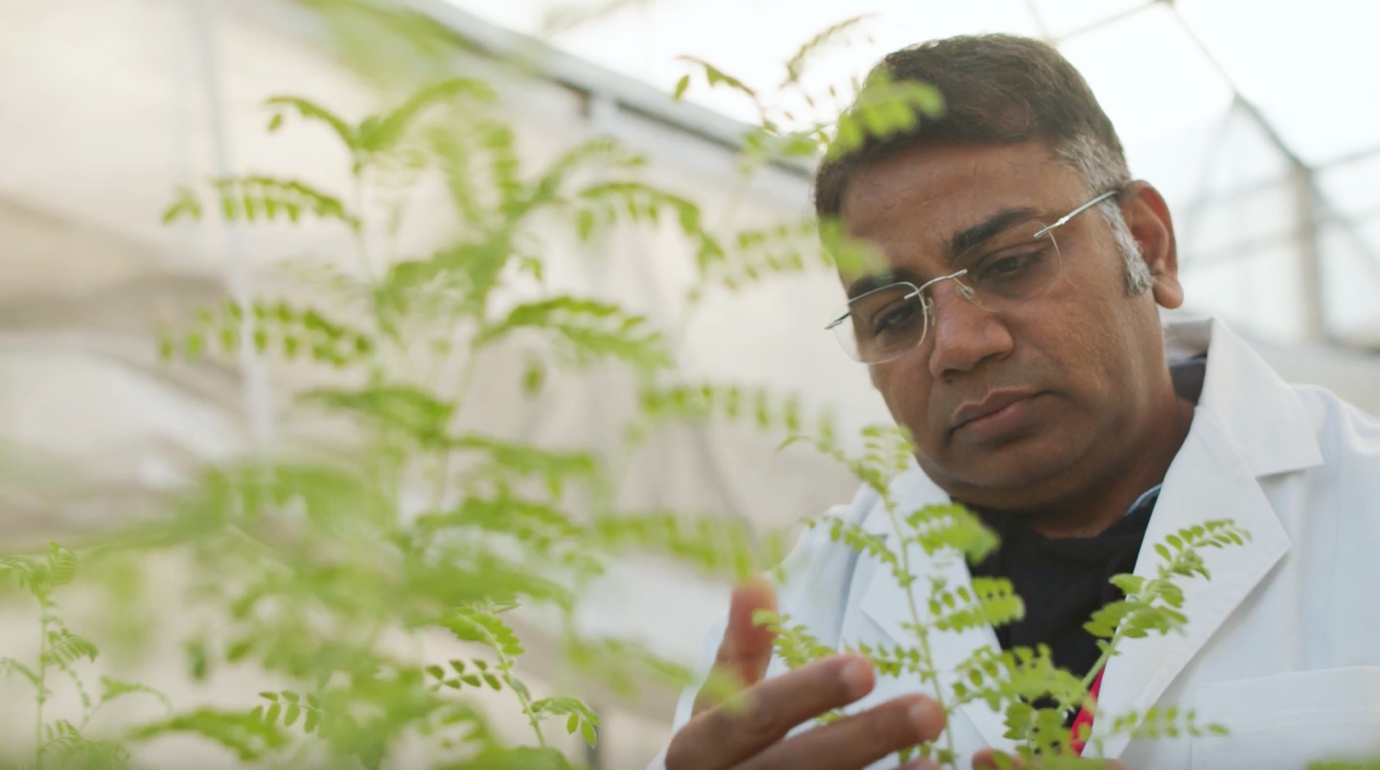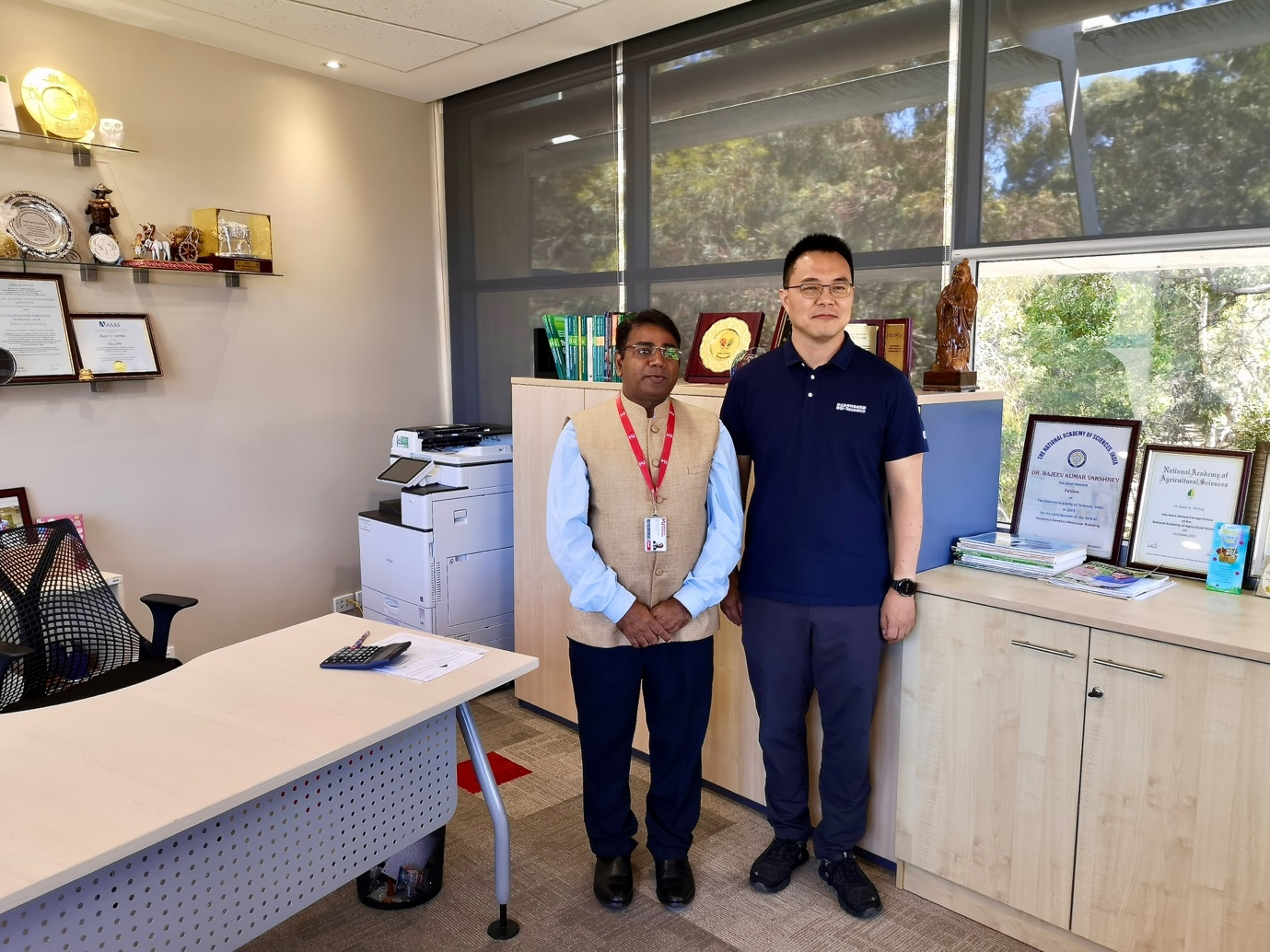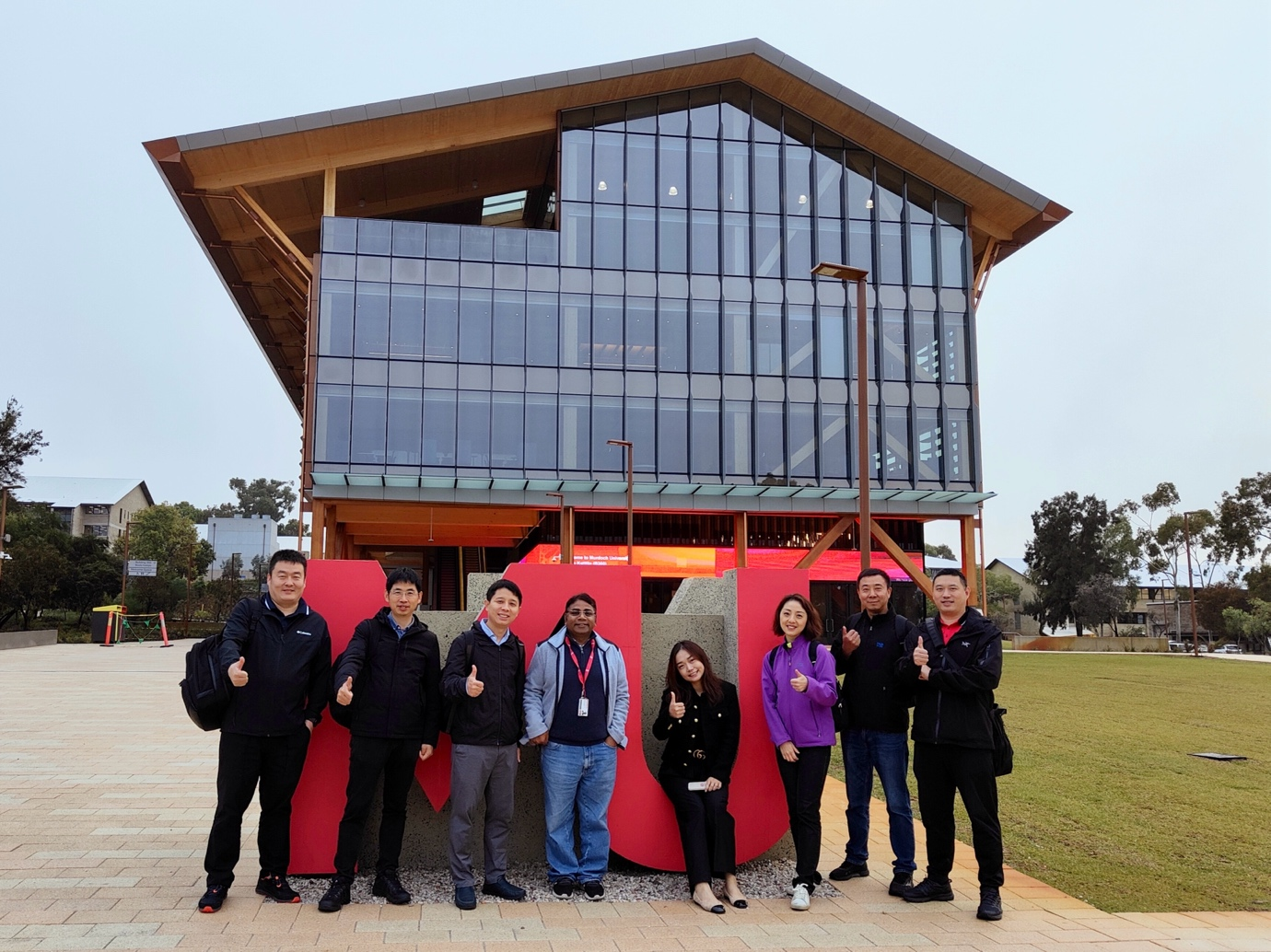‘FRS’. Three initials that symbolize so much in the world of scientific endeavor. They stand for Fellow of the Royal Society which, since 1660, has been a fellowship of many of the world’s most eminent scientists including Sir Isaac Newton, Benjamin Franklin, Charles Darwin, Albert Einstein, Prof. Stephen Hawking, and Sir Tim Berners-Lee.
This year, Prof. Rajeev Varshney, an agricultural crop scientist that BGI Group has worked closely with since 2010, was elected to the Royal Society for his work in agricultural science and now has the honor of being Dr. Rajeev Varshney FRS.
 Prof. Rajeev Varshney is elected to the Royal Society as a Fellow.
Prof. Rajeev Varshney is elected to the Royal Society as a Fellow.
He became only the fourth Indian agricultural scientist, and third scientist from Australia, and one of just 13 worldwide in the filed of Agricultural Sciences and Forestry to be elected as a Fellow of the Royal Society. In his interview in Indian publication Biotech Express, he said: “While I feel humbled and honored to be on the list with giants and eminent person in various fields, I also feel a responsibility to contribute more and more to Agricultural Science.”
A Journey in Agricultural Science
Prof. Varshney has a long title. He is currently Director of Centre for Crop and Food Innovation, Director of Western Australia State Biotechnology Centre, and international chair in Agriculture and Food Security with Murdoch University, Australia.
His title provides a clue to the man himself and his quest in scientific research. Since starting his career as a research scientist at IPK Gatersleben in Germany in 2001, Dr. Varshney has been a man in constant momentum, focused on agricultural genomics and improving food security in developing countries. He has published 20 books and more than 500 articles. He is a highly cited researcher, a TEDx speaker, and has received numerous prestigious awards for his research.
For 17 years from 2005 to 2022, Prof. Varshney worked at ICRISAT, the International Crop Research Institute for the Semi-Arid Tropics, in Hyderabad, India, where from the start he practiced applied genomics looking at how genomics can assist the breeding of semi-arid tropical crops. It was through this work that in 2010 Prof. Varshney began his collaboration with BGI on the genome sequencing of pigeonpea and then with seminal work on chickpea, peanut and many other crops, where he met with Co-founder and Chairman Huanming Yang, Director Xun Xu, Dr. Bicheng Yang, Dr. Xin Liu, and many other BGI collaborators.
These crops are often called orphan crops because of how they are grown as part of subsistence farming. They had not been widely studied, yet they are critical food crops in parts of Asia and Africa. Through genomic sequencing it has been possible to understand how the crop genes can be adapted to improve the quality and quantity of the harvest or to make them more adaptable to extreme climates.
“Because of our partnership with BGI, we were able to develop high-quality genomic resources in so-called orphan legume crops,” explains Prof. Varshney. "From the initial construction of the reference genome to the large-scale whole genome re-sequencing, together BGI, we sequenced over 10,000 accessions of several crops."
Advances in sequencing technology have made this easier and cheaper over the years. Prof. Varshney notes, “BGI Group has played a very important role in the evolution and refinement of sequencing and other genomics technologies. It is hearting to see that they always come up with new technology that can be used at low cost, and at a large scale.” He further added, “Not only my research group, several research groups around the world including many from developing countries have been able to deploy these genomics technologies in agriculture, due to support and collaboration of BGI Group.
After serving ICRISAT for 17 years, Dr. Varshney moved to Murdoch University in Perth, Australia, where he continues his quest for crop innovation and food security and is using some of the latest sequencing equipment produced by MGI technology. It is his work in legume research and the development and adoption of improved varieties that led to the Royal Society conferring him with a Fellowship.
 Prof. Rajeev Varshney in a glass house at Murdoch University.
Prof. Rajeev Varshney in a glass house at Murdoch University.
Nullius in verba
The Royal Society is a remarkable institution. It is the oldest scientific academy in continuous existence and since the 1660s its fundamental purpose has been ‘to recognize, promote and support excellence in Science and to encourage the development and use of science for the benefit of humanity.’
King Charles II granted royal approval in 1663 and the fellowship became known as The Royal Society of London for Improving Natural Knowledge. The Royal Society’s motto is the Latin Nullius in verba, which broadly means ‘take nobody’s word for it,’ and speaks to man’s quest for knowledge through proven scientific discovery.
Today, the Royal Society is made up of about 1,800 of the world’s most eminent scientists, including 85 Nobel Laureates, and each year elects new Fellows on their scientific merit. Candidates must have made ‘a substantial contribution to the improvement of natural knowledge, including mathematics, engineering, science and medical science.’ Prof. Varshney was one of 80 Fellows elected in 2023 and joins a remarkable group of scientists who have made some of the greatest discoveries of our time. By coincidence, he will be signing the register of fellowship, on his 50th birthday, that has been signed by elite scientists like Sir Isaac Newton, Albert Einstein, and alike.
The Royal Society is much more than a Fellowship of eminent scientists. It undertakes extensive work to promote science through education, engagement, publications and grants. It works in areas such as promoting diversity in science - the first female Fellows, Kathleen Lonsdale FRS and Marjory Stephenson FRS, were elected in 1945.
The Royal Society has also extended its work overseas. As they note: “Science is a global endeavour. It is at the heart of modern life throughout the world and is inherently and increasingly international and collaborative.”
Collaboration for the good of humankind
 Dr. Xun Xu, Director of BGI-Research in office of Prof. Rajeev Varshney at Murdoch University to expand scientific collaboration between Murdoch University and BGI Group.
Dr. Xun Xu, Director of BGI-Research in office of Prof. Rajeev Varshney at Murdoch University to expand scientific collaboration between Murdoch University and BGI Group.
Scientific collaboration has been at the heart of everything BGI Group stands for ever since we were formed in 1999 to represent China in the Human Genome Project (HGP), collaborating with scientists from the U.S., UK, France, Germany and Japan to map and sequence for the first time all the genes in the human body.
Ever since the HGP, it has been through scientific collaboration that the greatest discoveries have been made including the sequencing of the Chinese rice (Japonica) genome, the silkworm genome and the giant panda genome. From human cells to birds, animals, plants and crops, BGI group has closely collaborated with scientists globally. Prof. Varshney values this collaboration: “When BGI Group works with a scientist, they works a true collaborator.”
BGI Group believes that mankind benefits the most when there is scientific collaboration and the open publication of scientific research. A recent example is the Earth BioGenome Project where BGI Group is a founding member and which brings together scientists from 45 institutions across five continents with a 10-year goal to sequence, catalog and characterize the genomes of all of the Earth’s eukaryotic biodiversity.
Another excellent example of collaboration is the SpatioTemporal Omics Consortium which was established as an open collaborative research initiative to unite, organize, advance and share global scientific efforts in spatiotemporal omics to solve the mysteries of life.
Over 270 scientists from 35 countries have collaborated as part of the consortium, and their efforts combined with BGI Group’s breakthrough Stereo-seq technology, has resulted in the publication of panoramic atlases for mice, small fruit flies, zebrafish and the Arabidopsis plant. Axolotl brain development and regeneration has been examined, revealing the regenerative potential of brain injuries, and melanoma cells have been identified and mapped in ways mankind could only have imagined a few years ago.
Global science cooperation enables the sharing of knowledge and expertise and is essential for tackling global issues such as climate change, pandemics, and food security.
 Prof. Rajeev Varshney met with BGI Group delegation at Murdoch University.
Prof. Rajeev Varshney met with BGI Group delegation at Murdoch University.
BGI Group’s collaborations with Prof. Varshney are helping to transform agricultural scientific research and helping to develop high-quality genomic resources in orphan legume crops, enabling new varieties to be bred for higher yields and better quality, offering more possibilities for food security.
From everyone at BGI Group: Congratulations, Prof. Rajeev Varshney FRS. We look forward to collaborating with you on many more projects.



